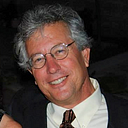An APUSH SAQ — Second Wave Feminism:
Ten questions designed to help students review for the annual exam and that relate to a period of feminist activity that began in the early 1960s, lasted roughly two decades, and sought to increase equality for women by gaining more than just enfranchisement.

- Second-wave feminists mobilized behind claims for legal equality. One piece of evidence in support of this claim is the US Supreme Court case of Roe v. Wade? What did the court decide in this case?
- Second-wave feminists mobilized behind claims for economic equality. One piece of evidence in support of this claim is the Equal Pay Act of 1963.
- Second-wave feminists mobilized behind claims for social equality. Title IX of the Education Amendments Act of 1972 and the development of and related “taking of the birth control pill” are evidence in support of this claim. What did Title IX prohibit? What did this law prohibit?
- Second-wave feminists who participated in the counterculture of the 1960s rejected many of the social values of their parent's generation. Name one social value of their parent's generation that the feminists rejected.
- Second-wave feminists who participated in the counterculture of the 1960s rejected many of the political values of their parent's generation. Name one political value of their parent’s generation that the feminists rejected
- Second-wave feminists who participated in the counterculture of the 1960s rejected many of the economic values of their parent's generation. Name one economic value of their parent’s generation that the feminists rejected
- Second-wave feminists advocated for changes in sexual norms. Explain what this means.
- Second-wave feminists also drew attention to the issues of domestic violence and marital rape, engendered rape-crisis centers and women’s shelters, and brought about changes in custody laws and divorce law. Name and briefly describe either a custody law or divorce law that was brought about in the 1960s and 1970s.
- First-wave feminists focused mainly on suffrage and overturning legal obstacles to gender equality. Name and briefly describe a legal obstacle to gender equality (other than suffrage) that first-wave feminists focused on.
- What event of the 1800s marks the beginning of the first wave of feminism?


